Diaspora Poll Tips Bobi Wine to Win Uganda’s Presidential Elections
In Summary: The Ugandan Diaspora have spoken. The endorsement has been emphatic and unequivocal. They favor the 38-year-old Robert Kyagulanyi Sentamu aka Bobi Wine to win the January 14, 2021 presidential elections. Results from an online poll conducted between November 5 and 9 placed the 76-year-old incumbent Yoweri Kaguta Tibuhaburwa Museveni in second position. But, the Ugandan Diaspora does not vote. Yet, their endorsement is priceless. They wield immense economic, cultural, and political capital. Their opinions matter but their collective voice matters even more. When they speak, both the leaders and the led listen. The Diaspora contribute over one billion dollars to the Ugandan economy through their annual remittances. These remittances come third in line behind tourism and regional trade in Uganda’s foreign currency earnings. By every account, the Diaspora stand tall among the greatest cultural, economic, and political influencers in Uganda. You ignore and overlook them at your peril. While this online poll sampled only 211 Ugandans in the Diaspora, its results speak a ton and cannot be simply overlooked. As Samuel Muwanguzi writes, Both the incumbent and the other 10 contestants had better slam the breaks and take notice! Huge clouds are forming and heavy winds are gaining strength. Do you see what we see?
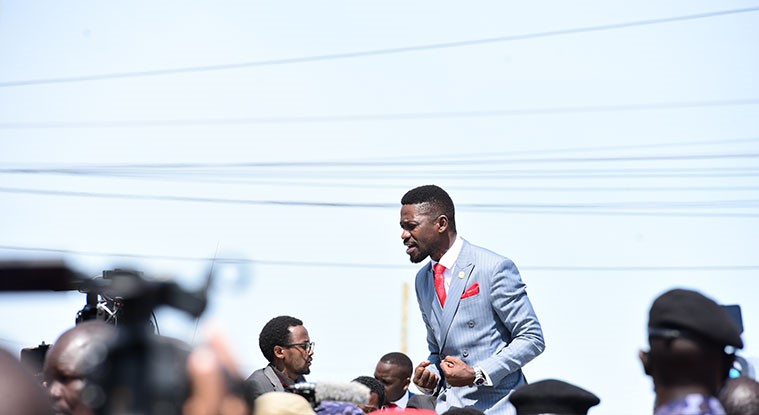
Dallas, Texas—Results from an online survey conducted among Ugandan Diaspora communities on which candidate they favored to win the January 14 2021 presidential elections have overwhelmingly tipped music maestro turned politician Robert Kyagulanyi Sentamu to cruise to victory if the elections were held on Monday November 9, 2020. The Ugandan electoral commission nominated 11 candidates, 10 men and 1 woman to contest in the controversial ‘scientific’ presidential elections in the midst of the creeping coronavirus pandemic that has thus far killed over 150 and infected over 15,000 Ugandans. Popularly known by his stage name Bobi Wine, Robert Kyagulanyi Ssentamu, the presidential candidate for the National Unity Platform (NUP) scored 57.5% in the poll, over 40 points ahead of his distant competitors; incumbent Yoweri Museveni and Maj. Gen. Mugisha Muntu who tied at 12.25%.
The survey was conducted by the Center for Public Policy & Global Business Initiatives (CPGBI), a respectable research firm based in Dallas, Texas, USA, between November 5 and 9, 2020. The poll was commissioned five days after the presidential campaigns were kicked-off at the end of the nomination exercise held between Wednesday November 3 and Thursday November 4 at Kyambogo University near Kampala. However, members of the Ugandan Diaspora around the world do not vote and their support and favorable endorsement will not translate in real votes during the forthcoming elections.
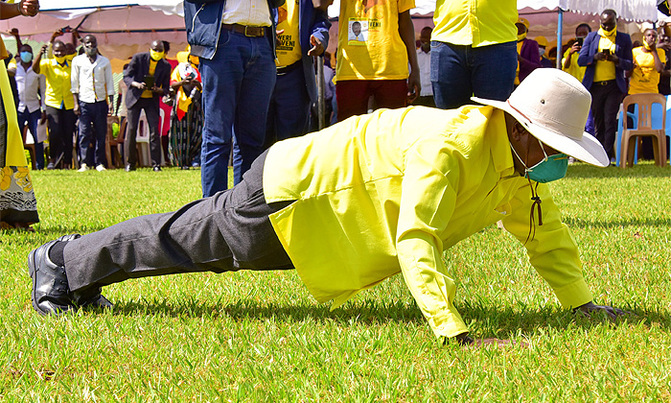
Beaten to the second position with a whooping margin of over 40% is the National Resistance Movement (NRM) candidate, the 76-year-old incumbent General (rtd) Yoweri Museveni Tibuhaburwa Kaguta who polled a paltry 12.5%. President Yoweri Museveni has been in power since 1986, nearly 6 month shy of his 35-year reign which he seeks to extend to 40 with another 5-year term, the sixth in a row slated to end in May 2026. The online poll, using a survey tool, SurveyMonkey that drew a random sample of 211 participants from Diaspora communities residing in North America, Europe, and Asian countries, had a margin of error of about + or - 2.5.
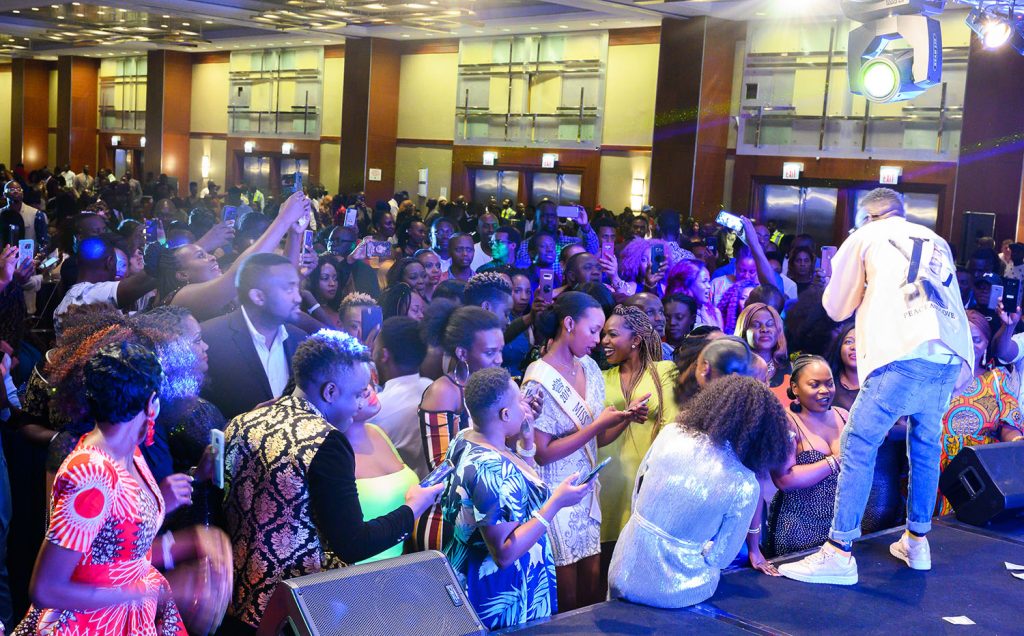
Take it or leave it. The Ugandan Diaspora have spoken. The endorsement has been emphatic and unequivocal. They favor the 38-year-old Robert Kyagulanyi Sentamu aka Bobi Wine to win the January 14, 2021 presidential elections. But, the Ugandan Diaspora does not vote. Yet, their endorsement is priceless. They wield immense economic, cultural, and political capital. Their opinions matter but their collective voice matters even more. When they speak, both the leaders and the led listen. The Diaspora contribute over one billion dollars to the Ugandan economy through their annual remittances. These remittances come third in line behind tourism and regional trade in Uganda’s foreign currency earnings. By every account, the Diaspora stand tall among the greatest cultural, economic, and political influencers in Uganda. You ignore and overlook them at your peril. As of this writing, campaigns are in full swing. All odds are pitted against Bobi Wine. But the Diaspora hands are on deck for him. While this online poll sampled only 211 Ugandans in the Diaspora, its results speak a ton and cannot be simply overlooked. Both the incumbent and the other 10 contestants had better slam the breaks and take notice! Huge clouds are forming and heavy winds are gaining strength. Do you see what we see?
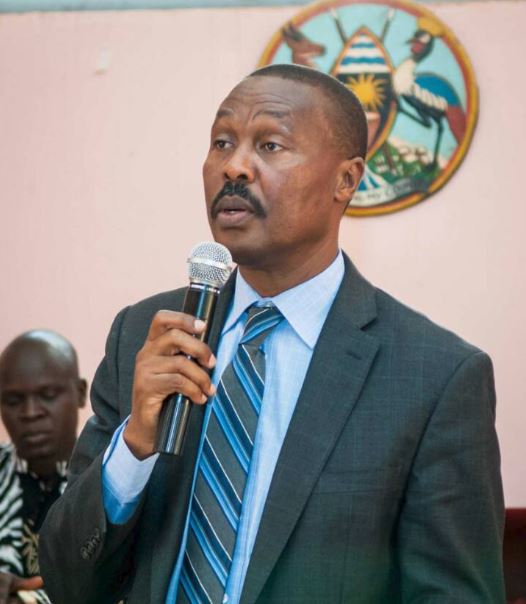
Tied in the same second position with his former commander-in-chief, Gen. Yoweri Museveni, is the retired army commander Maj. Gen. Gregory Mugisha Muntu, the presidential candidate for the Alliance for National Transformation (ANT). Maj. Gen. Mugisha Muntu had earlier showed glimpses of favorability among the Ugandan Diaspora communities but his star could hardly shine through the shadows of his former comrade in Forum for Democratic Change (FDC) and the four-time presidential contender Dr. Col. (rtd) Kiiza Besigye and now the surging Bobi Wine of NUP.
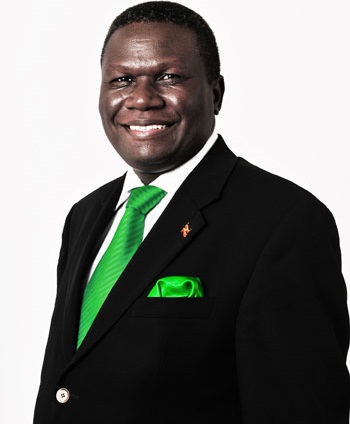
The Diaspora poll placed Democratic Party (DP) presidential candidate Norbert Mao in third position with 7.5%,. This is the second time Mr. Nobert Mao is taking a shot at the presidency after his maiden bid in 2011 made no significant impact on the poll. Mr. Nobert Mao, arguably the most eloquent of the 11 candidates, is contesting the elections against a backdrop of massive desertion of over 10 Members of Parliament (MPs) from Uganda’s oldest political party, DP, to Bobi Wine’s NUP. Mr. Mao’s woes were recently compounded by the announcement by his long-term friend and Vice President Mr. Mukasa Mbidde who ditched him in preference for Bobi Wine.
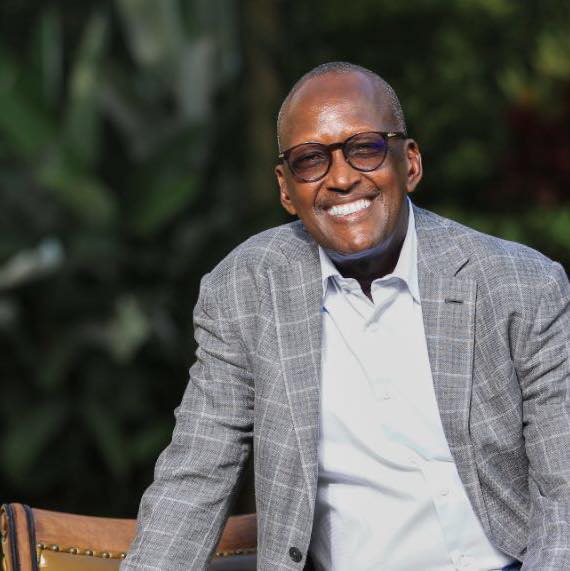
Three independent presidential candidates including former spy master and security minister Lt. Gen. (rtd) Henry Tumukunde; Joseph Kiiza Kabuleta; and Nancy Linda Kalembe were tied with a favorable endorsement of only 2.5% of the sampled diaspora population. Besides Lt. Gen. Henry Tumukunde, the other two independent candidates, Mr. Joseph Kabuleta, a sports journalist turned pastor and now politician, and Ms. Nancy Linda Kalembe actually overperformed beyond expectations. But the 2.5% score by former spymaster Henry Tumukunde could point to a disappointing outcome for the man who, until recently, was the blue-eyed kid of the NRM government.
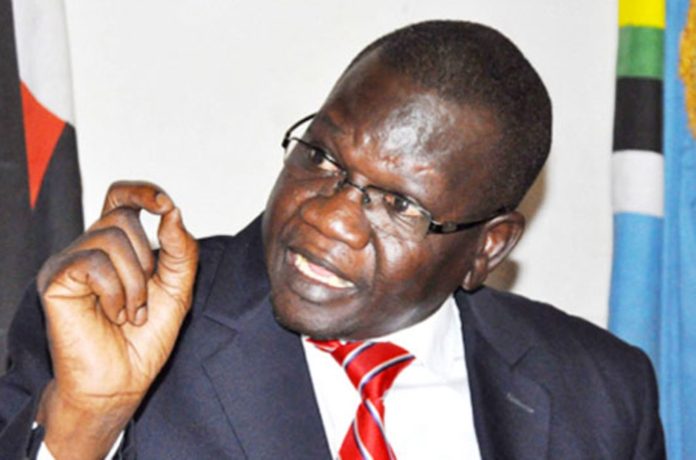
The other candidates, Eng. Patrick Oboi Amuriat (FDC), the 24-year-old Mr. John Katumba (Independent), and Mr. Willy Mayambala (Independent) did not receive any support from the diaspora. The trio scored 0%. Nevertheless, 5% of the sampled diaspora communities wished there were other candidates who showed interest in the race.
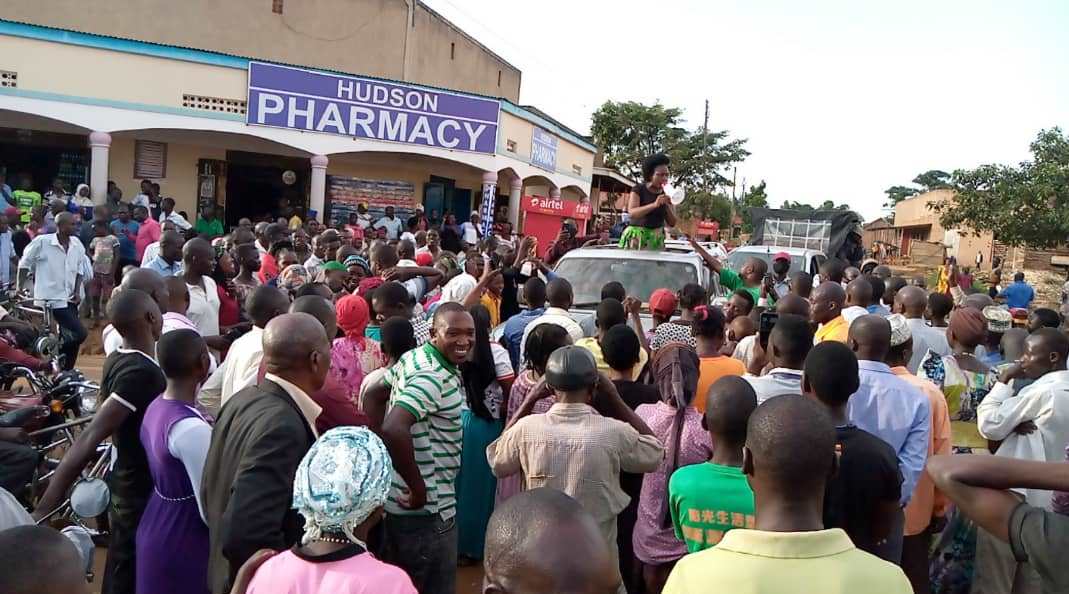
The survey sample of 211 Ugandans living in the Diaspora attracted 72.5% males and 22.5% females, while 5% indicated other. Responding to a question on the political party they preferred to lead Uganda for the next 5 years, the diaspora favored the National Unity Platform (NUP) with a 45% endorsement while the National Resistance Movement (NRM) and independent candidate scored 17.5%. The Alliance for National Transformation (ANT) scored 10% while the Forum for Democratic Change (FDC) and the Democratic Party (DP) garnered 2.5%. Five percent of those sampled did not choose any political party or an independent candidate.

According to Dr. Michael Kaluya, senior consultant with the Center for Public Policy & Global Business Initiatives (CPGBI) which conducted the Diaspora poll, the NUP party could be benefiting from the diaspora support due to the more activities they have organized within the diaspora communities around the world than other political parties. However, he cautioned that it remained to be seen whether this support would translate into votes from those who will vote during the January 14, 2021 elections.
The poll results suggest that the most pressing issues on the minds of Ugandan diaspora communities were ranked as follows: access and equitable healthcare, 43.4%, rampant corruption in Uganda, 18%, promoting democracy and not dictatorship and treating all Ugandans equally were scored at 15.4% and 7.7% respectively. Other issues included Access and Equitable education opportunities and roads and other infrastructure at 5.13%. The promotion of economic opportunities for all Ugandans and other issues not mentioned in the survey scored 2.6%. Access to healthcare and the concern about corruption in Uganda could be issues easily identified by the diaspora communities because they have either directly or indirectly affected them. For instance, their family members in Uganda could have died as a result of the poor health facilities in the country. In addition, members of the diaspora communities have often suffered losses at the hands of the corrupt system in Uganda.
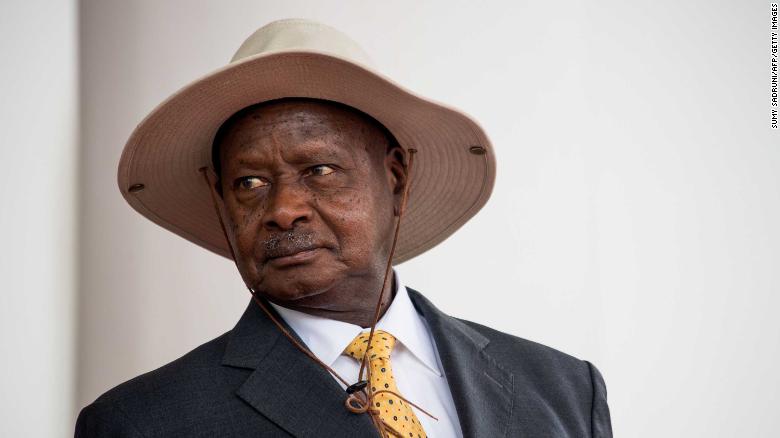
Furthermore, 92.5% of the Ugandan diaspora community feel that they are disfranchised by denying them an opportunity to vote leaders in their motherland while 7.5% did not care if they voted or not. In addition, 70% strongly believed that the country they call their motherland was headed in the wrong direction, for those who agreed and strongly agreed were tied at 12.5%; and 2.5% neither agreed nor disagreed whether they believed change was necessary in the country.
On the question whether change was a MUST in Uganda, 75% of Ugandans living abroad strongly agreed, 10% agreed, 7.5% strongly disagreed, 5% disagreed and 2.5% neither agreed nor disagreed.
Out of the 211 randomly surveyed sample online, 97.5% of the participants identified themselves as Ugandans living in the diaspora and 2.5% identified themselves as non-Ugandans. On whether the diaspora were proud of their motherland or not, 87.5% said they were, and 12.50% were not.
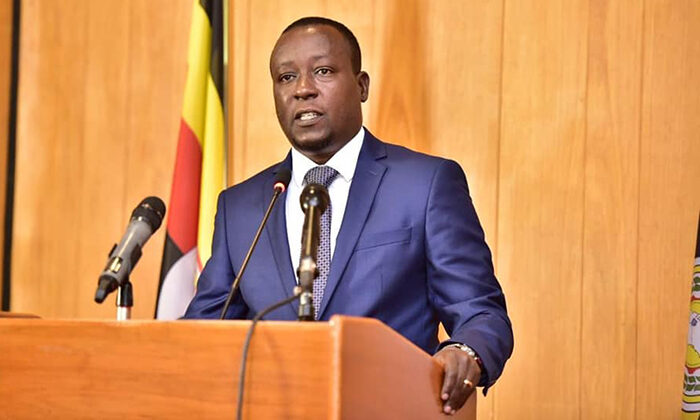
The diaspora population is fairly educated as 37.5% of the survey participants said they were bachelor’s degree holders, 30% said they held a master’s degree, 7.5% a PhD (a research degree) and 5% a doctorate degree (practitioner degree). Those who held diplomas were at 5%. Other credentials included Uganda Certificate of Education, 5%, Uganda Advanced certificate of education 2.5%, some university course work, 2.5%, some secondary education, 2.5%, and those who completed primary leaving examinations were at 2.5%. There were no Ugandans living in the diaspora who identified themselves and having no formal education.
The Center for Public Policy & Global Business Initiatives (CPGBI) which conducted the online poll is not associated with any political parties or candidates in Uganda’s political dispensation. The findings of the survey, Dr. Michael Kaluya cautioned, should not be translated into actual results because the elections in Uganda are two months away. Besides, the survey was conducted on a population that is not going to vote in the elections in Uganda. However, he said that the results of the poll represent the wishes of Ugandans living in the diaspora in case they had an opportunity to vote.


